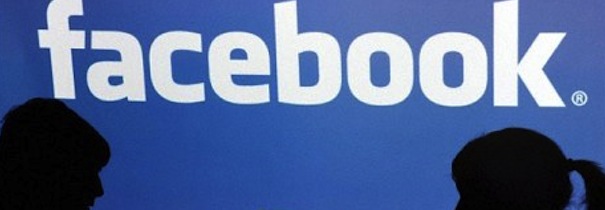An iconographic and text archive related to communication, technology and art.
This week collection of links includes two “top films” lists, a new motion-based 3D user interface, the increasing role played by Facebook in divorce claims (from 2011), numerous news references to the ongoing protest in Montreal, an article about the collaboration between the U.S. Army and Hollywood, Slavoj Žižek’s take on what could be called an “immunitary” problem and the growing average-weight of web pages.
• • •
-
For cinephiles fond of “Top x” lists: 1) The New yorker: “The Top Ten” by Richard Brody, may 15, 2012. Brody started writing for The New Yorker in 1999. He’s also the author of “Everything Is Cinema: The Working Life of Jean-Luc Godard” (Google Books); 2) The website They Shoot Pictures, Don’t they? offers a list of the Top 500 Greatest Films of all time, according to a survey of different “Top x” lists. To learn more about this website, visit their About page.
-
The Leap is a small iPod sized USB peripheral that creates a 3D interaction space of 8 cubic feet to precisely interact with and control software on your laptop or desktop computer. It’s like being able to reach into the computer and pull out information as easily as reaching into a cookie jar.
The Leap senses your individual hand and finger movements independently, as well as items like a pen. In fact, it’s 200x more sensitive than existing touch-free products and technologies. It’s the difference between sensing an arm swiping through the air and being able to create a precise digital signature with a fingertip or pen.The video is impressive and the device is affordable.
-
Telegraph.co.uk: “Facebook increasingly implicated in divorce” by Richard Alleyne, January 21, 2011. Not exactly news, but another interesting juxtaposition between a website that promotes “openness” and “togetherness” while being held responsible for various processes of separation.
Emma Patel, the head of family law at Hart Scales & Hodges Solicitors, said the site acted like a “virtual third party” in splits. “Facebook is being blamed for an increasing number of marital breakdowns, and it is quite remarkable that all the petitions that I have seen here since May have cited Facebook one way or another,” she said.
-
There’s an ongoing protest movement in Montreal, the largest city on the province of Quebec (Canada). The events made the headlines of local and international news agencies during the past few weeks. Interestingly enough the official motto of the city is Concordia Salus, meaning “well-being through harmony” (see Wikipedia). Here are some relevant links:
- BBC News: “Quebec passes ’emergency bill’ on student protests”, May 18, 2012.
- The Guardian: “Quebec rocked by student protests”, May 18, 2012 (by Associated Press in Montreal).
- The Gazette: “Anatomy of a conflict after 100 days of student protests” by Peggy Curran, May 22, 2012.
- Al Jazeera English: “Canada student protesters plan mass rally”, May 22, 2012.
- Business Insider: “It’s Time To Start Watching The Giant Student Protests In Quebec” by Adam Taylor, May 30, 2012.
- Translating The Revolution: “We Are All Québécois: A Statement Of Solidarity From Chilean Students And Academics”, May 27, 2012.
-
Motherboard: “Bombers in Hollywood: The Price of Military Tech Assistance in Movies” by Abraham Riesman, May 22, 2012.
He’s not the only one: the past few years have seen an explosion of high-profile cooperation between the armed forces and the movie industry. If the most powerful armed force in history isn’t winning in reality, it certainly is on the big screen. And like so many problematic aspects of late capitalism, the military-Hollywood complex has a grimly understandable logic.
-
London Review of Books: “Save us from the saviours” by Slavoj Žižek, Vol. 34, No. 11, 7 June 2012, page 13.
Many liberal warriors are so eager to fight anti-democratic fundamentalism that they end up dispensing with freedom and democracy if only they may fight terror. If the ‘terrorists’ are ready to wreck this world for love of another, our warriors against terror are ready to wreck democracy out of hatred for the Muslim other. Some of them love human dignity so much that they are ready to legalise torture to defend it. It’s an inversion of the process by which fanatical defenders of religion start out by attacking contemporary secular culture and end up sacrificing their own religious credentials in their eagerness to eradicate the aspects of secularism they hate.
Another argument to add to the “immunitary” line of thoughts.
-
GigaOM: “The growing epidemic of page bloat” by Joshua Bixby, May 23, 2012.
The average web page is now more than 1 megabyte (MB). This isn’t a case where bigger is better, it’s bad for site owners and for mobile users.
Guilty as charged, although it’s intentional: one of the purpose of this website is to archive interesting images in medium to high resolution format. This problem however is not specific to my website. With the introduction of retina display devices, websites will have to be modified in order to serve appropriate images according to the device where they are displayed (laptop, large desktop screen, old iPod or newest generation iPad). Someone using a smartphone doesn’t necessarily want to be served hi-res images (it’s slower and it eats up more bandwith). The solution has something to do with “responsive design”. It isn’t quite there yet but it certainly is something I’m going to look into in the near future.
- By Philippe Theophanidis
- on
- ― Published in Link-roundup




